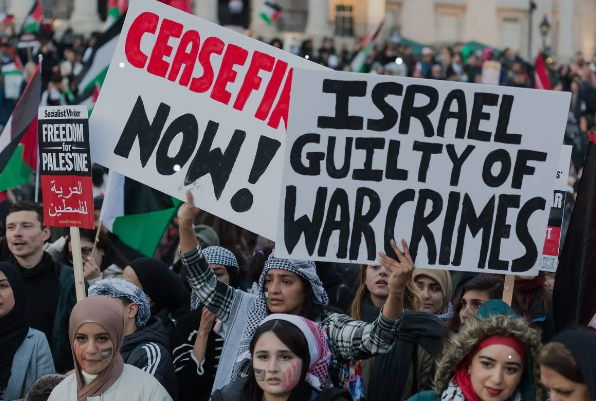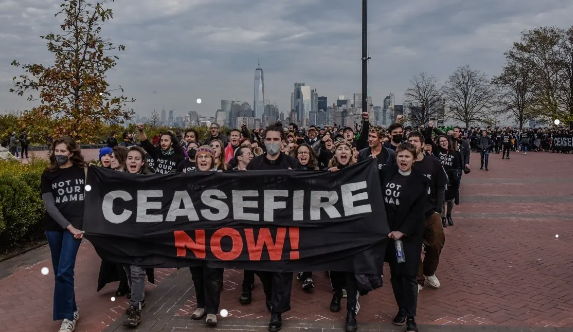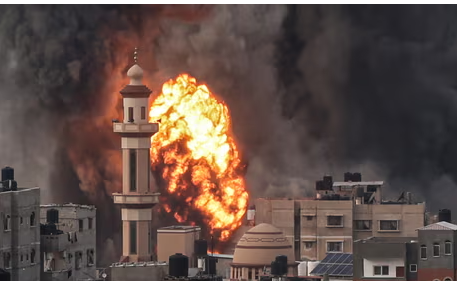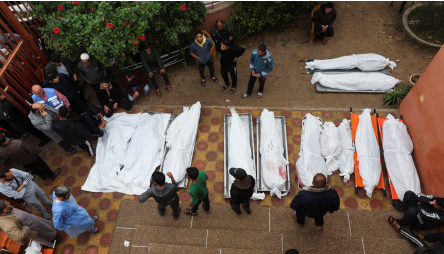After nearly three months of relentless airstrikes, continuous displacements, and inadequate humanitarian aid, Gazans express their exhaustion and desperation for an end to the fighting. Israel’s military campaign against Hamas appears poised to extend into the new year. Despite growing international opposition, including UN Chief Antonio Guterres’ renewed call for an immediate humanitarian ceasefire and South Africa initiating a case against Israel in international court, the Israeli army persists in its operations throughout the Gaza Strip. The World Health Organization highlights the escalating risk of infectious diseases as more Gazans are displaced, pushing them further south towards the already overcrowded city of Rafah.

“Enough with this conflict! We’re utterly worn out. Constantly displaced in the chilling cold, we find ourselves moving from one place to another,” expressed 49-year-old Um Louay Abu Khater from a camp in the southern border city.
“The bombs persistently rain down on us day and night. We live in constant anticipation of missiles, while others are gearing up for New Year’s Eve celebrations.”

The UN reports that over 85 percent of Gaza’s 2.4 million residents have fled their homes, enduring hunger and facing the winter rains in makeshift tents.
Since the Israeli siege imposed after October 7, following years of a debilitating blockade, critical shortages of food, safe water, fuel, and medicine have emerged, with sporadic relief provided by aid convoys.

On Friday, the UN agency for Palestinian refugees revealed that one such convoy had come under fire from Israeli forces the day before, causing no casualties.

Reflecting on the year coming to a close, Ahmed al-Baz, 33, remarked, “It has been the worst year of my life. A year of destruction and devastation. We endured hell and faced death itself.”

“All we want is for the conflict to cease, and to welcome the new year in our homes with a declared ceasefire,” he added.
